Refractory Glossary
Definitions of Key Terms in the Industry
Welcome to the MXS Refractories Glossary — your expert source for clear, concise definitions of essential refractory terms. Whether you’re managing a glass furnace shutdown, auditing a cement kiln, or sourcing the right suppliers, understanding the vocabulary is crucial.
This technical glossary includes industry-specific concepts, materials, equipment, and processes — all explained by our experts to help you optimize operations and communicate more effectively with partners and providers.
Looking for a specific refractory definition? Browse below or use the search bar to find what you need.
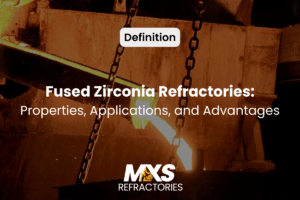
Fused Zirconia Refractories: Properties, Applications, and Advantages
Fused zirconia refractories are high-performance materials known for their exceptional resistance to corrosion, thermal shock, and chemical attack. Made by melting zirconium-rich materials, they are
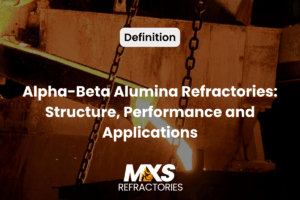
Alpha-Beta Alumina Refractories: Structure, Performance and Applications
Alpha-beta alumina refractories combine both crystalline phases of alumina to deliver enhanced thermal shock resistance and structural stability. Commonly used in high-temperature applications, they provide
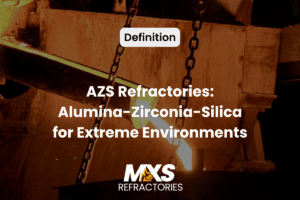
AZS Refractories: Alumina-Zirconia-Silica for Extreme Environments
AZS refractories, composed of alumina, zirconia, and silica, are high-performance materials widely used in glass furnaces and severe service conditions. They offer excellent corrosion resistance,
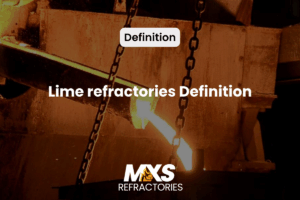
Lime refractories Definition
Lime refractories are high-temperature materials composed mainly of calcium oxide (CaO), known for their strong resistance to basic slags and their critical role in non-ferrous
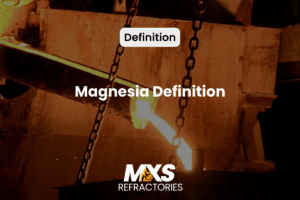
Magnesia Definition
Magnesia refractories are high-performance materials composed primarily of magnesium oxide (MgO), offering outstanding resistance to basic slags and high temperatures. Commonly used in steelmaking, cement
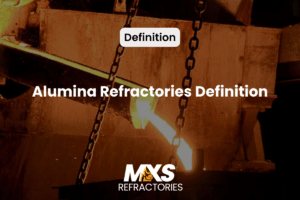
Alumina Refractories Definition
Alumina refractories are high-temperature ceramic materials primarily made from aluminum oxide (Al₂O₃). Known for their excellent thermal resistance, mechanical strength, and chemical stability, they are
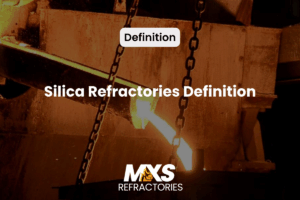
Silica Refractories Definition
Silica refractories are ceramic materials primarily composed of silicon dioxide (SiO₂), widely used in high-temperature industrial processes. Known for their high melting point, excellent resistance
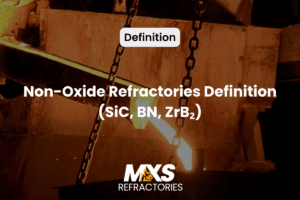
Non-Oxide Refractories Definition (SiC, BN, ZrB₂)
Non-oxide refractories include materials such as silicon carbide (SiC), boron nitride (BN), and zirconium diboride (ZrB₂). These advanced ceramics offer exceptional thermal conductivity, resistance to
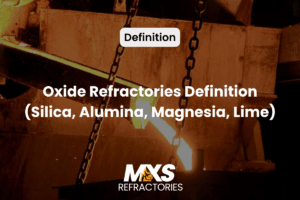
Oxide Refractories Definition (Silica, Alumina, Magnesia, Lime)
Oxide refractories are refractory materials composed primarily of oxide compounds such as silica, alumina, magnesia, and lime. They are widely used in high-temperature applications due
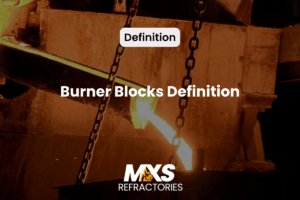
Burner Blocks Definition
Burner blocks are specialized refractory components designed to house and protect burners in high-temperature industrial furnaces. They ensure optimal burner performance while resisting thermal shock,
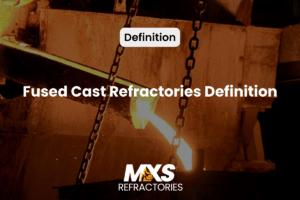
Fused Cast Refractories Definition
Fused cast refractories are high-performance materials manufactured by melting raw materials and casting them into molds, producing dense, corrosion-resistant products widely used in glass furnaces
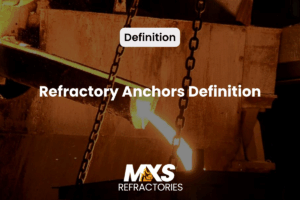
Refractory Anchors Definition
Refractory anchors are essential metal components used to secure refractory linings inside furnaces, kilns, and reactors. They maintain the integrity of the lining during thermal
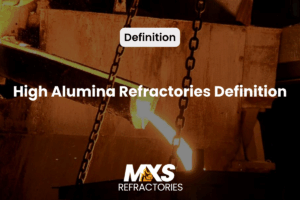
High Alumina Refractories Definition
High alumina refractories are advanced heat-resistant materials containing more than 45% alumina (Al₂O₃). Known for their excellent resistance to corrosion, abrasion, and high temperatures, they
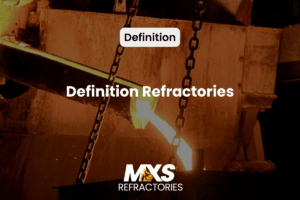
Definition Refractories
Basic refractories are heat-resistant materials with high resistance to basic slags and environments, commonly used in steelmaking, cement, and non-ferrous metallurgical processes. Their chemical stability
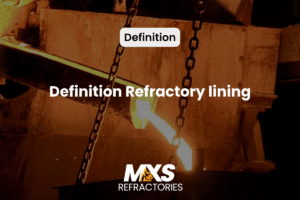
Definition Refractory lining
Refractory lining is a protective layer of heat-resistant material installed inside furnaces, kilns, reactors, or incinerators to shield the structure from extreme temperatures and mechanical
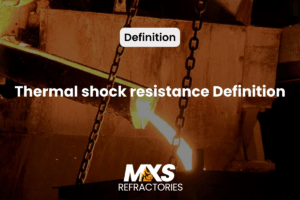
Thermal shock resistance Definition
Thermal shock resistance refers to a material’s ability to withstand rapid temperature changes without cracking or degrading. It is a key property in refractory materials
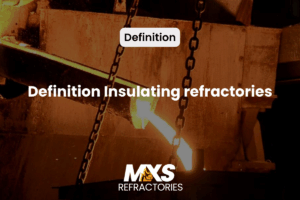
Definition Insulating refractories
Insulating refractories are lightweight materials designed to reduce heat loss and improve energy efficiency in high-temperature industrial applications. They have low thermal conductivity and are
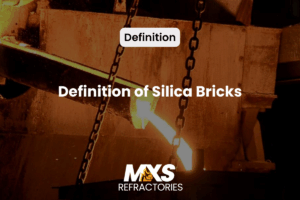
Definition of Silica Bricks
Silica bricks are refractory products composed primarily of silica (SiO₂), ideal for high-temperature applications due to their excellent thermal stability.
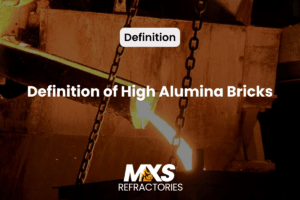
Definition of High Alumina Bricks
High alumina bricks are refractory bricks with a high content of alumina, offering excellent resistance to heat, corrosion, and mechanical wear.
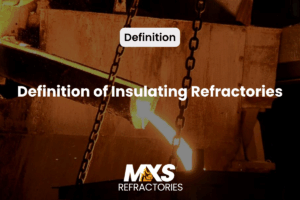
Definition of Insulating Refractories
Insulating refractories are lightweight materials designed to reduce heat loss in high-temperature industrial systems while maintaining thermal efficiency.
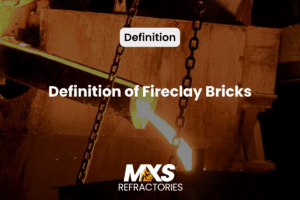
Definition of Fireclay Bricks
Fireclay bricks are a traditional type of refractory brick made from natural clay with high alumina and silica content, widely used in industry.
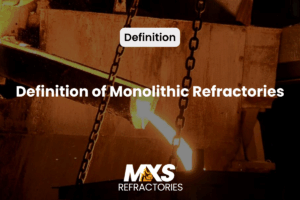
Definition of Monolithic Refractories
Monolithic refractories are refractory materials installed as a single, continuous mass, without joints or prefabricated shapes like bricks or tiles.
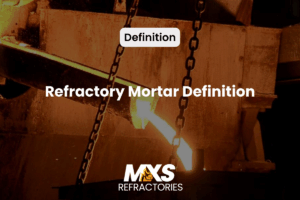
Refractory Mortar Definition
Refractory mortar is a specially formulated material used to bond refractory bricks and shapes in high-temperature environments. It provides mechanical strength and thermal insulation while
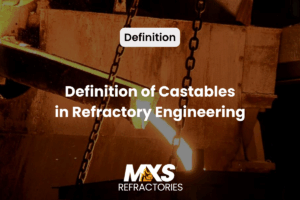
Definition of Castables in Refractory Engineering
Refractory castables are unshaped materials used to form heat-resistant linings in industrial furnaces and kilns. They are installed by casting, pumping, or gunning, and harden
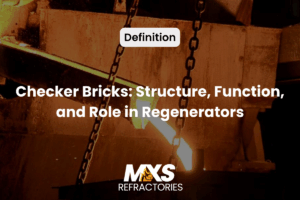
Checker Bricks: Structure, Function, and Role in Regenerators
Checker bricks are refractory blocks used in regenerative chambers of high-temperature furnaces to store and transfer heat. Common in glass and steel industries, they help
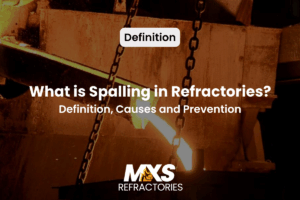
What is Spalling in Refractories? Definition, Causes and Prevention
Spalling is the cracking, flaking, or breaking of refractory materials under thermal, mechanical, or chemical stress. It compromises the performance and lifespan of linings in
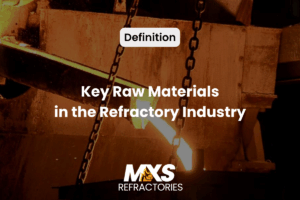
Key Raw Materials in the Refractory Industry
Refractory raw materials are natural or synthetic substances used to produce heat-resistant products for high-temperature industrial processes. These materials include alumina, silica, magnesia, zirconia, and
